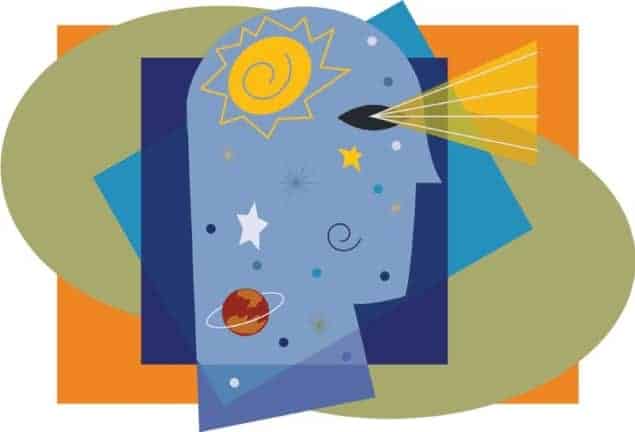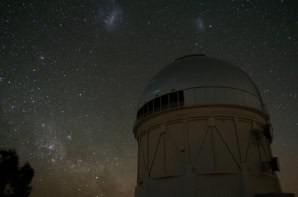Lake Views: This World and the Universe
Steven Weinberg
2010 Harvard University Press £19.95 hb 272pp

Steven Weinberg is a thinker of immense breadth and depth, a “scientific intellectual” of a kind that has become all too rare. One of the world’s leading theoretical physicists, he shared the 1979 Nobel Prize for Physics for his work on the unification of electromagnetism with the weak force responsible for radioactivity. By then, he had already made his first foray into popular-science writing, discussing cosmology – not his primary specialty – in The First Three Minutes. In 2001 he extended his reach, setting out his trenchant views on subjects ranging from physics to the culture wars in a book of essays called Facing Up: Science and Its Cultural Adversaries.
Now, in his latest collection of essays, Lake Views: This World and the Universe, Weinberg has gone even further afield, writing again about physics but also more generally about science and philosophy, about defence and space policy, and about politics and (lack of) religion. Each of the essays dissects one of these subjects with the same logic, clarity and single-mindedness that his colleagues appreciate in Weinberg’s research papers.
For physics students, Weinberg’s essay on Einstein’s ill-fated quest for a theory unifying gravity and electromagnetism should be required reading. He also cogently covers the twists and turns of what Einstein called his “greatest mistake”: the cosmological constant, which has recently turned out to be one of Einstein’s deepest insights – a salutary example of the principle that whatever is not forbidden by symmetry is generally compulsory. Similarly, students of physics and maybe others will value Weinberg’s expositions of the Standard Model, dark energy, the multiverse and the search for a “final theory”. Another interesting physics essay is about J Robert Oppenheimer, whose steely combination of intellect and principle, we learn, inspired Weinberg to pursue a career in theoretical physics.
Weinberg’s lawyerly dissection of Steven Wolfram’s claims to have initiated a new type of physics is also instructive. Very politely, and very systematically, he demolishes Wolfram’s specific assertions about cellular automata while emphasizing the intrinsic interest of this aspiration. Many feel the urge to overturn the hegemony of quantum field theory, but Wolfram’s ideas were insufficiently original and powerful to subvert it. For the time being, it maintains its tyranny as the basic framework for describing fundamental physics.
For me, one of the most stimulating essays in this collection is that on the nature of scientific explanation. All would-be philosophers of science would be well advised to read it carefully. Yet Weinberg has not entirely given up on social science; indeed, in a separate essay, he waxes optimistic about an impending truce in the “culture war” between scientists and sociologists of science. I wish I could share this rosy view, but as the recent Large Hadron Collider “black hole” scare and the ongoing climate debate indicate, the authority of science is still continuously challenged.
Another set of essays that I appreciated greatly was that on missile defence and space policy. Weinberg is a well-read amateur military historian with extensive experience as a Jason consultant for the US military, but he is no hawk. Instead, his dealings with the military–space–industrial complex seem to have sensitized him to the insanities in schemes for antiballistic-missile defence and manned spaceflight, and he pulls few punches in condemning them here. After reading one particularly excoriating passage, I almost pity any hapless Air Force general or politician who might, at some point, be on the receiving end of Weinberg’s inquisition.
His observations on the mentality that leads to such misguided thinking are also instructive. Indeed, one of the most fascinating essays in the volume describes how the pursuit of glory has led repeatedly to poor military choices. Reading this, I could not help but reflect that theoretical physicists are similarly prone to making poor judgements when motivated by searches for personal glory – with the notable exception of Weinberg himself.
All of the essays in this group will tread on some political toes, particularly in Weinberg’s now native state of Texas, where he contemplates the views across the lake by his house. His remarks about Israel are sure to tread on a few more: one can only imagine the discussions in student unions that might arise from his assertion that “the greatest miracle of our time is the rebirth of Israel in its ancient home”. A staunch atheist with a Jewish background, Weinberg waxes indignant at the UK’s old National Association of Teachers in Further and Higher Education (NATFHE, now part of the University and College Union), which in 2006 voted for an academic boycott of Israel. The action was subsequently revoked, but not before Weinberg had cancelled his plans to attend a conference in Durham.
On that occasion, Weinberg’s sense of grievance and subsequent actions were understandable. However, his decision (which he describes in a footnote) to cancel attendance at a 2007 Imperial College conference that honoured his old friend Abdus Salam – this time because the National Union of Journalists voted for a boycott of Israeli products – left many of its participants disappointed and perplexed. We hope to see Weinberg return to the UK soon, as he says he doubtless will.
There is much material for reflection in these essays – for the person in the street as well as for the student, postdoc, senior scientist, philosopher or politician. If more of us could view the subjects of these essays as rationally and coolly as Weinberg does on his lakeshore, our world and our public discourse would be the better for it. To many, the most poignant essay in this collection may be the last one, in which Weinberg takes on religion. Less provocative than the biologist Richard Dawkins, Weinberg is nevertheless an outspoken atheist, who finds “a certain honour, or perhaps just a grim satisfaction” in facing up to an uncaring universe “with good humour, but without God”. At the end, one is left with an intriguing mental image: Weinberg gazing calmly into the metaphysical distance across his Texas lake, quietly prepared to meet his final theory.



